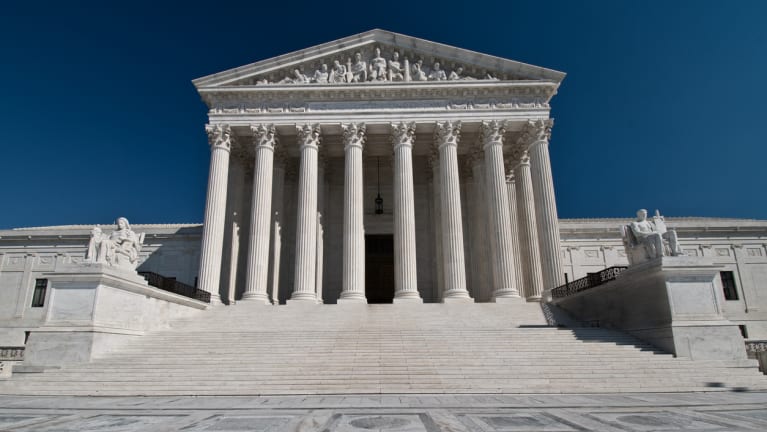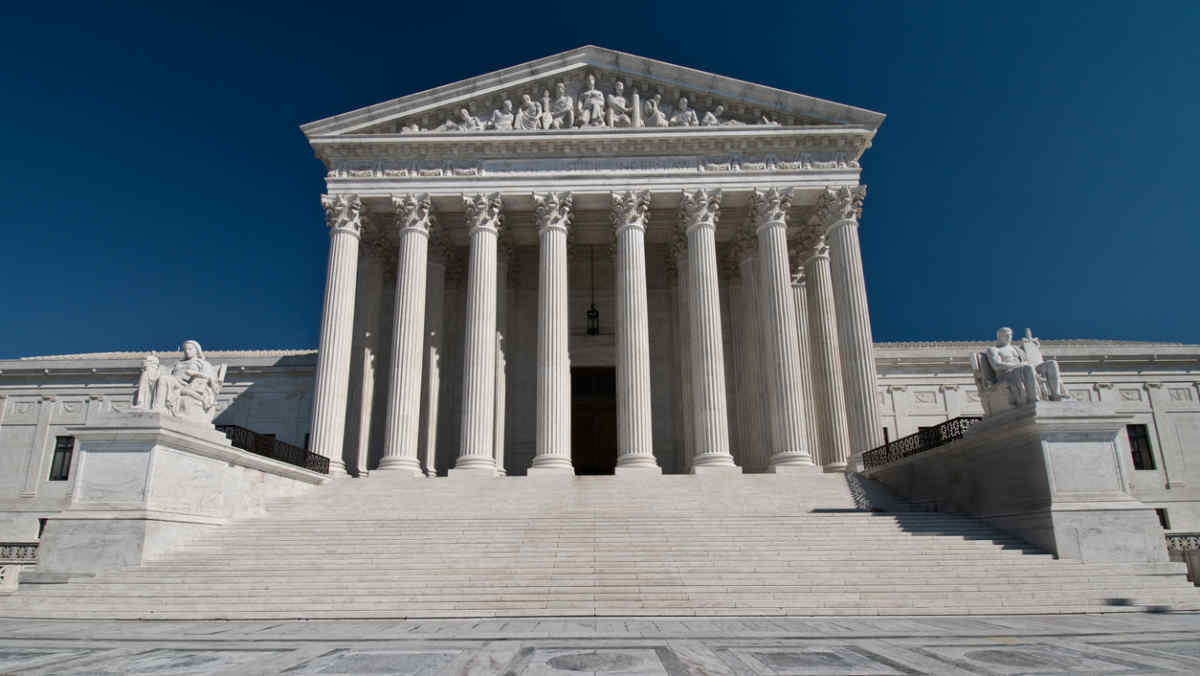

?A recent opinion shows how the U.S. Supreme Court has increasingly looked favorably on individuals and companies that challenge the power of federal agencies.
In a 5-4 decision on May 25, the court ruled that the U.S. Environmental Protection Agency (EPA) and the Army Corps of Engineers cannot regulate wetlands that are not directly connected to waters of the U.S. This limits the scope of the federal Clean Water Act.
The case illustrates how the court might be likely to rule when employers face legal battles with the U.S. Department of Labor, U.S. Occupational Safety and Health Administration, [KK1] or the U.S. Equal Employment Opportunity Commission.
“The ruling signals the court’s willingness to ignore administrative rulings and agency interpretations even when the agency’s position has received deference in the past. Given recent administrations’ use of agency rulemaking to circumvent the gridlock in Congress, it may be more difficult for the Biden administration to do so without facing appeals, delay and negative rulings,” said Pamela Moore, an attorney with McCarter & English in Hartford, Conn.
“The court is likely not going to sit back and allow agency rulemaking to take place without check. Unless the rule is clearly within the authority granted to the agency through the relevant statutory language, the court appears more than willing to block agency actions,” she added.
Background
The case, Sackett v. EPA, involved a private property near Priest Lake in Idaho. After purchasing the land, the property owners backfilled some of the land with dirt in order to build a house. The EPA told the owners that the backfilling was a violation of the Clean Water Act because the wetlands on their property were waters of the U.S., because they were near a ditch leading to a creek that fed into Priest Lake. The couple challenged the EPA’s policy in court.
In a 2006 case, the Supreme Court established the “significant nexus” test, under which federal agencies could regulate wetlands that were ecologically, rather than physically, connected to navigable waters. But the latest ruling quashed that test, stating, “Wetlands that are separate from traditional navigable waters cannot be considered part of those waters, even if they are located nearby.” The court confirmed that “waters of the United States” means a relatively permanent body of water connected to traditional interstate, navigable waters, along with adjacent wetlands that have a continuous surface connection to the body of water.
The Supreme Court reversed and remanded the decision of the 9th U.S. Circuit Court of Appeals.
“While the court unanimously agreed to reject the significant nexus test, there was sharp disagreement on what any new rule should look like,” said Michael Showalter, an attorney with Arent Fox Schiff in Chicago. “Many wetlands that were previously regulated may now be outside the agency’s jurisdiction.”
Agency Authority
Similar to the Sackett case, the Supreme Court curbed federal agency authority when it decided two cases against the U.S. Federal Trade Commission and the U.S. Securities and Exchange Commission on April 14. It concluded that federal district courts can hear constitutional challenges to an agency’s authority before the agency completes its own appeals process.
In addition, the Supreme Court recently agreed to hear another case that could significantly alter the power of federal agencies. In Loper Bright Enterprises v. Raimondo, the justices will weigh overturning the longstanding Chevron precedent, which holds that when Congress wrote a statute without a clear meaning, courts should defer to the federal agency applying the law, unless its directives were unreasonable.
The Supreme Court’s recent trend of reviewing agency authority in balance with constitutional concerns may impact workplace policies, such as noncompete agreements and no-poach agreements, in the future.
If there are challenges to agency actions in the employment context—for example, if the Federal Trade Commission finalizes its proposed rule barring noncompete agreements—the court will be receptive to challenges, Moore said.
“This generally presages a relatively stable regulatory scheme going forward, given that Congress is essentially deadlocked, and agencies will have to be careful about expanding the scope of their authority,” she said.
